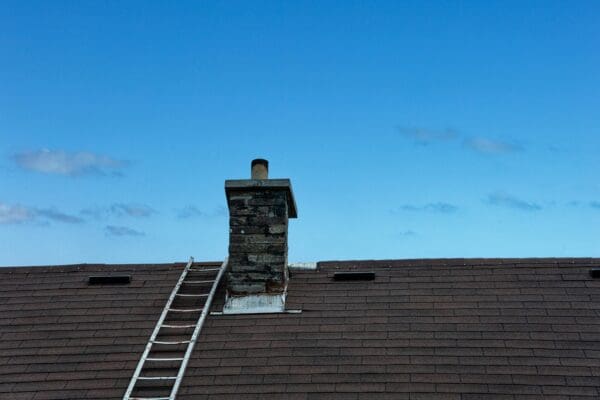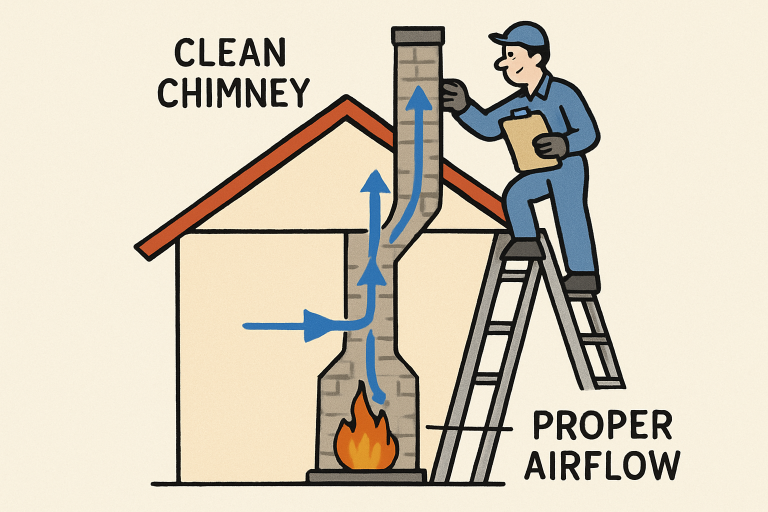
The Importance of Regular Chimney Inspections
Safeguarding your home requires constant vigilance, especially in areas that are often overlooked but are crucial for the well-being of your household—your chimney being one of the most significant. While chimneys bring warmth and comfort during cold seasons, they can also pose a danger if regular care and attention are neglected. Dust, debris, creosote, and blockages can accumulate out of sight, posing serious risks that many homeowners might not consider. Scheduling a chimney inspection is not just a box to check off on your home maintenance list—it is an essential step in safeguarding your family, belongings, and property from hidden dangers that could otherwise escalate rapidly into costly disasters.
Beyond the apparent threat of fires, an unkempt chimney can introduce a variety of hidden risks that can impact your living environment in subtle but hazardous ways. The air quality inside your home may silently decline due to the buildup of smoke residues, chemical byproducts, or carbon monoxide—conditions that are nearly impossible to detect without professional inspection equipment. Regular chimney inspections serve as a proactive defense, identifying these invisible threats at an early stage and helping you maintain a home that is not only safer but also more energy-efficient. Staying ahead of potential problems means you can enjoy peace of mind every time you light your fireplace.
Preventing Chimney Fires
The buildup of creosote—a sticky, flammable byproduct of burning wood—poses the most significant risk of chimney fires. It is a problem that can develop remarkably quickly with frequent fireplace use. Research indicates that thousands of residential fires occur each year due to unchecked creosote deposits. Even a relatively thin layer of creosote can ignite at high temperatures, turning your cozy fireplace into a potential hazard. During an annual inspection, a professional sweep will methodically clean your flue while assessing the overall condition of your fireplace system, thus drastically minimizing the risk of a catastrophic fire and ensuring safe operation of your heating system for the entire season.
In addition to fire prevention, chimney inspections enable experts to identify and address other combustion-related issues—such as improper fuel use or damaged components—that could exacerbate the dangers posed by improper burning or venting. Regular cleaning and updates help preserve not only the safety but also the efficiency of your heating appliance, allowing you to heat your home economically and securely.
Ensuring Proper Ventilation
Blockages, nesting animals, or deterioration within the chimney can severely hinder proper ventilation, resulting in inadequate airflow and a buildup of hazardous gases within your living space. Carbon monoxide—a colorless, odorless gas linked to numerous emergency incidents every year—can seep into your home if the chimney fails to provide an unobstructed path for smoke and fumes to exit. Regularly scheduled inspections not only maintain ventilation by removing obstructions but also ensure that your flue and cap remain in good working condition to prevent backdrafts and indoor air pollution.
The health implications are significant; ongoing exposure to poor air quality can cause headaches, fatigue, respiratory irritation, and even life-threatening poisoning in severe scenarios. According to guidelines, homeowners should prioritize venting and routine checks as a central part of maintaining a healthy and comfortable environment for everyone in the household.

Identifying Structural Issues Early
Over time, your chimney is exposed to a relentless cycle of freezing, thawing, rain, and heat—factors that challenge even the most well-built masonry. Weather’s gradual effects can result in flue liner cracks, loose or missing bricks, deteriorating mortar joints, or water damage that erodes the overall strength of the structure. Early detection of any of these problems is crucial for reducing hazards, such as heat transfer to nearby combustible materials or pieces of brickwork falling into your fireplace. Routine inspections by a qualified professional will identify these vulnerabilities before they have a chance to worsen, allowing you to schedule targeted repairs and avoid both emergencies and expensive overhauls.
Even a small crack or gap, if left unrepaired, can allow water to enter the chimney. This moisture accelerates deterioration, causes mold or mildew growth, and may lead to rusting of metal parts such as dampers or chimney caps. The result is not only costly to fix but threatens the longevity of your entire chimney system. By maintaining the structure proactively, you safeguard not only the immediate function of your fireplace but also invest in the future durability and value of your home.
Preventing Animal Intrusions
Chimneys often serve as an inviting refuge for wildlife such as birds, squirrels, raccoons, or even bats, particularly during the colder months when animals are in search of warmth and shelter. These unwanted guests can create blockages by building nests or storing food, severely reducing airflow and dramatically increasing the risk of a chimney fire. Besides causing airflow problems, the presence of wildlife brings its own set of challenges, ranging from foul odors caused by droppings or decomposition to the spread of mites and parasites that can infiltrate your home and pose a threat to your health.
Professional chimney inspections are designed to spot and safely remove new animal nests, debris, or any physical evidence of wildlife activity before these intrusions escalate into dangerous obstructions. Special chimney caps or screens can be recommended as a preventive measure to keep animals out in the first place, providing peace of mind and a long-term solution to a common household problem.
Extending Chimney Lifespan
The overall longevity of your chimney is directly related to the quality and frequency of care it receives. Periodic maintenance and prompt attention to minor problems help prevent small issues from developing into larger, costlier repairs or necessitating a complete chimney rebuild. Experts recommend burning only seasoned hardwoods, as this reduces residue buildup, and having a certified sweep assess the entire system on an annual basis. Regular inspections and cleaning not only extend your chimney’s operational life but also improve heating efficiency, allowing you to avoid unexpected maintenance bills.
These consistent, professional check-ups are an investment that pays off over years of reliable operation, as they help you manage your home maintenance budget, reduce unexpected expenses, and retain the value of your property through attentive, responsible ownership.
Maintaining Home Insurance Coverage
Many home insurance providers require substantial documentation of regular chimney maintenance to process claims related to chimney-originating losses, fires, or related damages. Annual inspections, with thorough records kept of the work performed, are essential not only for your own peace of mind but also for demonstrating that you have taken necessary precautions as a responsible homeowner. Insurance companies may otherwise deny claims for incidents related to neglected care, making it more difficult to recover from potential damages.
Keeping up-to-date, written records is a straightforward step that supports both your legal responsibilities and your property’s long-term safety, ensuring that you are protected if you ever need to file a claim.
Ensuring Compliance with Local Codes
Local building codes and city ordinances often require homeowners to meet defined safety standards for chimney construction and maintenance. These regulations are in place to protect residents from preventable accidents, such as fires or exposure to deadly gases. Regular professional inspections serve a dual purpose: they confirm your chimney’s safety and help you remain in compliance with legal mandates, avoiding the risk of fines, citations, or even forced usage restrictions.
Staying compliant underscores the central importance of safety, rather than viewing inspections as mere bureaucracy. It also demonstrates good faith in caring for your property and protecting your neighbors, showing that you take community wellbeing as seriously as your own family’s safety.
Conclusion
Prioritizing regular chimney inspections is a crucial part of responsible home maintenance, providing peace of mind and tangible benefits. These inspections serve as an adequate safeguard against fire hazards, support indoor air quality, help you address minor structural issues before they escalate into significant problems, prevent animal intrusions, minimize repair costs, meet insurance and legal requirements, and extend the operational life of your entire chimney system. By acting proactively through scheduling annual inspections and routine maintenance, you ensure your home remains a safe, inviting, and comfortable retreat for years to come.